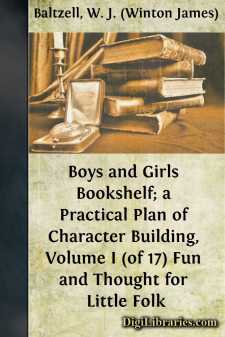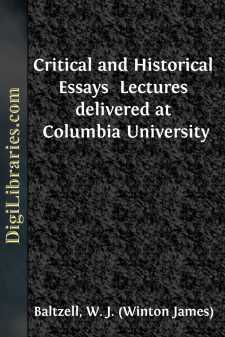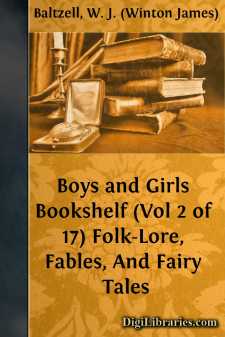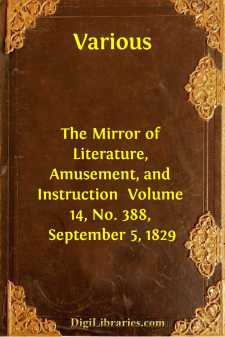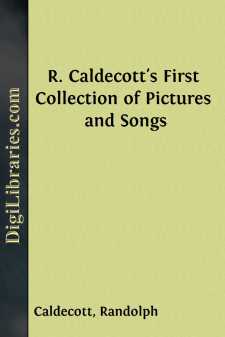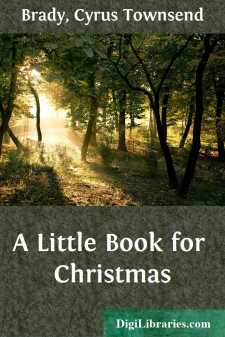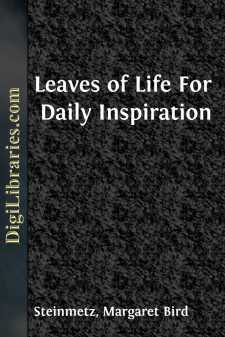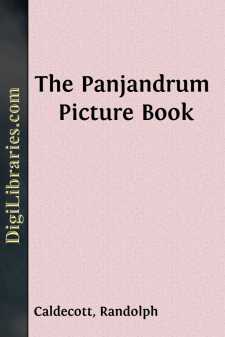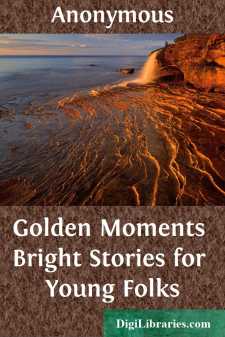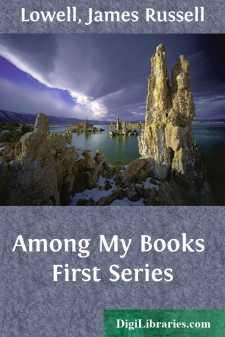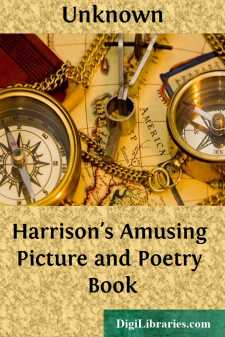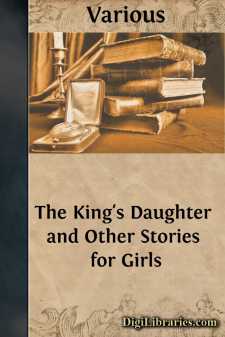Categories
- Antiques & Collectibles 13
- Architecture 36
- Art 48
- Bibles 22
- Biography & Autobiography 813
- Body, Mind & Spirit 142
- Business & Economics 28
- Children's Books 17
- Children's Fiction 14
- Computers 4
- Cooking 94
- Crafts & Hobbies 4
- Drama 346
- Education 46
- Family & Relationships 57
- Fiction 11829
- Games 19
- Gardening 17
- Health & Fitness 34
- History 1377
- House & Home 1
- Humor 147
- Juvenile Fiction 1873
- Juvenile Nonfiction 202
- Language Arts & Disciplines 88
- Law 16
- Literary Collections 686
- Literary Criticism 179
- Mathematics 13
- Medical 41
- Music 40
- Nature 179
- Non-Classifiable 1768
- Performing Arts 7
- Periodicals 1453
- Philosophy 64
- Photography 2
- Poetry 896
- Political Science 203
- Psychology 42
- Reference 154
- Religion 513
- Science 126
- Self-Help 84
- Social Science 81
- Sports & Recreation 34
- Study Aids 3
- Technology & Engineering 59
- Transportation 23
- Travel 463
- True Crime 29
Boys and Girls Bookshelf; a Practical Plan of Character Building, Volume I (of 17) Fun and Thought for Little Folk
Categories:
Description:
Excerpt
GENERAL INTRODUCTION
Books are as essentially a part of the home where boys and girls are growing into manhood and womanhood as any other part of the furnishings. Parents have no more right to starve a child’s mind than they have his body. If a child is to take his place among the men and women of his time he needs to know the past out of which the present grew, and he needs to know what is going on in the world in which he lives. He needs tools for his brain as much as for his hands. All these things are found, and found only, in books.
The child is helpless to provide himself with these necessaries for life. The majority of parents are eager that their children shall start early and right on that road which leads to honorable success. But it is impossible for any parent, by no matter how liberal an expenditure, to collect books that shall adequately cover all a child’s needs and interests. This is the task of experts.
INSTRUCTIVE PLAY
Recent studies of childhood have emphasized the conviction that a child develops his talents even more in his playtime than in his school; his spontaneous activities build up his fourfold—physical, mental, social, and moral—nature. Probably no collection of books has been more strongly affected by this modern discovery than the Boys and Girls Bookshelf. The whole effort has been to utilize the child’s play-interests so that they shall express themselves in joyous ways that lead into the world of invention and industry, of imagination and achievement, of science and art and music, of character and worth-while deeds.
Children’s collections have had various literary styles. The encyclopedia is comprehensive, but stately and often dull; it will answer the question of the child, but it does not lead the child toward more knowledge. The scrapbook is interesting, but it has no plan or order. The “inspirational” book is full of fine sentiments, but without facts or much information.
The Bookshelf is so built that it creates a desire for knowledge, and then satisfies that desire. At the same time the Bookshelf does not pretend to tell all that is known on any one subject. The Editors have selected the subjects concerning which no one should be ignorant, and have seen to it that the information is given in an attractive form with plenty of illustrative material, and that when the reader is finished he will have a working knowledge of the subject. To awaken minds and to make them alert and receptive has been the aim in making the Bookshelf.
THE PLAN AND SCOPE
The Bookshelf begins with the dawn of intelligence in the child, and goes with him through the morning of childhood, and into the noonday of youth. It contains a complete stock of finger-plays, action-plays, lullabies, and other entertaining and educational material enjoyable to babies and little children; it reaches into and through the high-school age. In fact, the Bookshelf, with its valuable scientific and natural-history material, its information about inventions and industries, and its literary treasures, is an asset to the library even of an adult.
The Bookshelf is classified. In some libraries material upon an unrelated variety of subjects may be found within the covers of a single volume. This feature has been tried and found wanting. It means that when the reader is on the trail of a given subject he never knows where to look for it, and he is likely to have to hunt through several volumes before he learns what he wants to know. The argument for an unclassified library is that the child who is reading a story may happen at the end of that story upon an article containing valuable information, and thus be lured on to read it. Children are not so easily beguiled. The mental distinction of being, as it were, forced to spring from one theme to another certainly counterbalances any supposed advantage in the scrapbook arrangement. “A place for everything, and everything in its place,” is as true an adage and as necessary to remember and to practise to-day as it ever was.
In addition to classifying the contents of the Bookshelf, the Editors have graded the material. Any collection that is purchased for a home and leaves out the needs of the children of any given age is disappointing to that home. There is also a Graded Index, which is an enlargement upon the general plan.
On the very day of its birth a baby enters the child’s garden of life. In this beautiful place there are weeds as well as flowers, and father and mother must guide the little adventurer so that only the good flowers are developed, while the weeds are held in check and the poisonous plants torn up and destroyed. Earnest parents feel this responsibility very keenly. In “Fun and Thought for Little Folk” there is a well-selected collection of jingles, stories, and play exercises for babies up to about three or four years of age. It covers the earliest informal education of a child, from finger-play days to the alphabet period. It helps parents who wish to enjoy their little children and who do not wish such enjoyment to be a mere matter of chance. Trained kindergartners with the modern viewpoint had much to do with this collection. Not only does it delight the little folk, but it is also the first material for child-training.
Educators are making much nowadays of fairy stories and wonder-tales. The imaginative man, they say, is the effective man, because he has the mental vision which sees farther than the physical eye; and they urge that all children should be the possessors of these nursery tales that have made children happy for so many centuries. “Folk-lore, Fables, and Fairy Tales” is the result of careful comparative study of all the leading anthologies, with added research into sources that have not otherwise been thoroughly explored.
The folk-lore of many races and times has been sifted, and wherever necessary it has been retold so as to be suitable to modern tastes and needs of modern children. Whatever was gruesome or morally undesirable has been omitted, but the flavor and the language of the past have been retained. Here are “Cinderella,” “Tom Thumb,” and all the other favorites of our childhood days, together with the stories that are told to the children in the four corners of the world. While these will be read to our boys and girls before they are able to read for themselves, they will turn back again and again to this department as they grow older. There is perpetual youth in the tales evolved by a race in its infancy.
From the fairy-tale and the folk-lore period, when beasts and trees and all that is about them speak to them in words they can understand, children develop into a stage where they want stories, or, as we say when we are older, fiction. Both they and we mean tales that while untrue yet would be possible of happening. At this age, also, children desire to learn the habits of the animals they see on the farm, in the zoo, and in the circus. The importance of giving children an early acquaintance with good literature is unquestioned, but even the most earnest parent has difficulty in making the selection, finding the source in available form, and keeping out what is unworthy.
“Famous Tales and Nature Stories” has been made with care. Many of the world’s famous stories are collected here, and wherever possible they are in the original language. The nature stories, about flowers and trees, birds and insects, are not formal, but are planned to give the child direct contact with nature and to assist the good habit of direct and interested observation.
This division also includes a Primer and a First Reader, made according to modern principles. Enough reading material is furnished in graded form to enable the home teacher to help her little pupil master the elements of reading, or the child will use it himself to supplement the work of the teacher in school, if the mother is too busy with her other tasks to permit her the enjoyment of teaching her child to read.
All modern kindergarten teaching to-day centers about the development of the child’s own impulses and interests. Of these the two most noticeable are the tendency to play and the tendency to construct. Even if a mother had no higher motive than to keep her little child out of mischief she would welcome a treasury of devices that will always be at hand to answer the question, “Mother, what shall I do now?” But most mothers appreciate the value and importance of well directed play and work. In “Things to Make and Things to Do” are given the directions for elementary cooking, sewing, woodworking and other handicraft. Successful teachers who are close to young children, and who kept home conditions in mind in all their writing, prepared these sections. Educationally they are sound, but, better than that, they are simple and explicit, and within the reach of the resources of each home. Here, too, are the suggestions for the directed and undirected play of the wee tots. The material in this department, while complete in itself, will prepare the way for and supplement all teaching in schools of these important subjects. It is of the first importance that boys and girls recognize the true nature of work and play. This department will help them in the right direction.
As a child grows older he craves true stories. “Mother, did it really happen?” “Father, was that make-believe or real?” These questions are but the sign of mental and spiritual growing pains. If the child is wisely aided, that poise which is so envied by the self-conscious person will be his. The chief factor in poise is knowledge.
To be at home in many lands and times is the mark of a really educated man or woman. Not all of us can actually travel, not all of us can have the privilege of the acquaintance of the world’s great men and women, but it is within the reach of every one to-day to discover, through picture and description, the world’s most far-away lands, and in the pages of books to have an intimate and inspiring acquaintance with the heroes of the nations. If we wish our children to be fine types of men and women, we must form their tastes in these large directions before they are overwhelmed by what is so ephemeral and worthless in literature and drama of the day.
“True Stories from Every Land” is prepared to catch the attention and to hold the interest of young children. Foreign lands are studied not by their boundaries and political affairs, but through the home life, the customs, the sports, and the work of their children, their men, and their women. The approach to history is made by biographies of some of the most interesting heroes, and especially by accounts of the adventurous pioneer days of America. The illustrations in this department are multitudinous, graphic, up-to-date, and many of them unusual. These stories will assist in home and school studies, because they illustrate the history, customs, manners, and peoples of different countries. They will help little children to learn how to read, and incidentally teach them much that will help them to appreciate the privilege and responsibility of being good Americans.
A good book of songs, familiar, tuneful, suitable to all occasions, and graded to suit the differing tastes of separate members of the family, is always welcome. The collection of “Famous Songs,” edited by Winton James Baltzell, is skillfully assembled from the best song-books available, and it also contains many pieces of unusual charm not so generally known. The songs for little children, for instance, are based upon a list approved by our leading kindergartners. A novel feature is that not only are the songs within range of children’s voices, but many of them have been arranged for instrumental use, and some for folk-dancing.
In “Picture Stories” we have a delightful series of reproductions of masterpieces of painting and sculpture of the world’s great art eras. Old masters and modern are well represented. The descriptions were written for children, remembering their interest in the story-element in pictures, and including inspiring details of the artists’ lives. In the other volumes are many more reproductions of masterpieces.
There are two volumes entitled “Nature and Outdoor Life”; the first one, “Trees, Flowers, Amphibians, and Reptiles,” begins with talks about earth, air, and sky, the clouds and weather, the seasons, the ways of bees and bugs and birds, illustrated with portraits of real children busy in observing the things of nature. Then follow sections on Familiar Flowers, Plant Life, Common Trees, and Reptiles and Amphibians, each written by an expert on the subject, and all profusely illustrated with photographs and drawings, many of the illustrations being in color. All this material is written in an easy and familiar style and in a manner to stimulate the right kind of curiosity. Children are encouraged to ask questions, and are unconsciously led to observe and read for themselves. Both this volume and its companion, “Birds, Animals, and Insects,” help boys and girls to find out many secrets of nature. In the second nature series we begin with pets and domestic animals, and then study the wild animals and birds of America. Next we learn of the ways of the birds and animals in other lands, which we meet in the zoölogical gardens of our own country. The volume closes with descriptions of the invertebrates.
The natural sciences are cared for in “Earth, Sea, and Sky.” Each division is more fascinating than the last, as it unfolds the world to us. We all want to know, and ought to know, more about the sphere upon which we live, its place in the universe, how it came to be peopled, and what are some of the laws that govern its magnificent forces and changes. This department is as interesting to old as to young, though it will find a warm place in the hearts of the youths who are just getting interested in physics, physiography, chemistry, and electricity.
An earlier volume covered the play and hand-work of little children. Our young people are now ready for games more skillful and coöperative, and handicraft more elaborate and involving a finer finish. “Games and Handicraft” supplies this need. If we are going to have a more interesting home life, if we are going to keep our boys and girls off the streets and away (sometimes) from the movies, if we are going to supplement the textbook work of the schools by the education of the hands, we need adequate handbooks to guide us. Sometimes such books are too vague to be practical. Here are working-drawings that are detailed and exact. That these projects can be executed is evidenced by the photographs of the finished work.
“Where can I get up-to-date, interesting and trustworthy descriptions of modern inventions for my young folks?” How many times this question is asked of book-store clerks by fathers! How often is a satisfactory answer given? Often such books are not up to date; usually they are too technical to be interesting; if they are interesting they are often untrustworthy; and none of them covers more than a portion of the ground. “Wonders of Invention” represents an earnest endeavor to meet this wide need within the covers of a single volume. The Editors were fortunate in obtaining for this department the coöperation of steamship companies, great electrical concerns, concrete firms, inventors and others “who know.” The illustrations were selected individually, and add to the value and interest of the text.
As a child develops toward maturity his talents begin to focus and his interests to direct themselves toward some special life occupation. The matter of Vocational Guidance is the most vital thing in education to-day, but wisdom in this field is far to seek. Changes in the industrial world are so rapid that books giving mere statistics of salaries and requirements are soon out of date, and they have no appeal to the young. Motive, rather than immediate gain, is what affects young people; and the Editors of The Bookshelf have felt that the one wise way to approach this great question is to describe the important activities of the world and some of the men who have been occupied in them, that young readers may be able to make an intelligent choice, and at the same time discover their own special talents. This section of The Bookshelf is known as “Marvels of Industry.” Aside from its value as a vocational guide, this volume will add much to the enjoyment of the family circle because of the facts that are gleaned from a perusal of its pages.
In “True Stories from Every Land” the little folks made the acquaintance of the world’s children. It is now time for the older young folk to travel. In “Every Land and Its Story” we take a journey around the world, beginning in North America, covering the rest of the New World, and then going to Europe, Asia, Africa, Australia, and the islands of the sea. The greatest emphasis is laid upon the lands that we love the most. In the United States the eight great natural divisions are described, then the Indians, the National Parks, Alaska, and Porto Rico. The greatest cities are visited in turn, the characteristics of each being picturesquely described. Canada is visited in the same way. In each case the country is described by a competent, interesting traveler, in many instances by one who has lived there a long time, and in some cases by a famous writer. Carefully chosen photographs illustrate this department.
Carlyle was right, at least as far as young people are concerned, when he insisted that history is only biography. The character-making influence of great lives has never been denied, and ought never to be neglected. “Famous Men and Women” begins with the men who made the United States and Canada. It tells about some of the living Men Who Count to-day. A simple graphic history of the greatest event in history, the World War of 1914-1918, is given. Then comes a glorious pageant of Scientists and Inventors, Writers and Rulers, National Heroes, and Servants of the Common Good. This material will not only form an excellent supplemental reading book, but a valued treasury for everyday inspiration.
Crowning the collection, and of surpassing importance, is “Bookland—Story and Verse.” This is an introduction to the best literature in poetry and prose for young people from twelve to twenty; in fact, for young people from twelve to eighty. The prose stories are presented in the language of the masters themselves. There is no diluting of their fine literary style. Careful abridgments have been made by well-known literary critics, but the essence of these masterpieces has been retained. This is important: our young people should know the great, not only about them. The poems are usually given entire.
In making the General Index and the Graded Index the Editors have remembered that these are for use, not to fill space. The General Index is practical and will help the user to find just what he is looking for, and to find it quickly. The Graded Index is intended primarily for the use of the parent. It sorts out and selects the best material for each age. First is given a brief, clear account of the tastes and needs of Infancy, Early Childhood, Middle Childhood, Late Childhood, and Adolescence. Then all the material in The Bookshelf is assorted under its score of important subjects, and put in the grade where it belongs. By this plan the child may be directed to what


